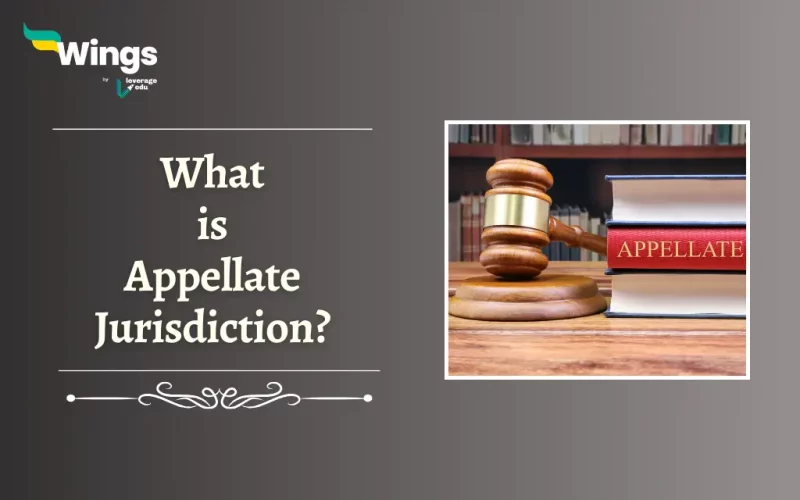Appellate Jurisdiction is the authority of a higher court to review decisions made by lower courts. Furthermore, this type of jurisdiction qualifies for thoroughly examining legal issues in a case that has already been decided, usually by a lower court. Moreover, it is an important part of the Indian Judiciary. Additionally, Appellate Jurisdiction guarantees that mistakes in a legal procedure or interpretation can be corrected. Thus, ensures that justice is done fairly and consistently. Read on to learn more about the Appellate Jurisdiction of the Supreme Court, and the cases under this jurisdiction!
Also Read: Article 144 of the Indian Constitution
What is Appellate Jurisdiction in CRPC?
Table of Contents
In the context of the Criminal Procedure Code (CRPC) in India, Appellate Jurisdiction is the power of higher courts to hear and review appeals from judgments and orders passed by lower courts in criminal cases.
- Under Section 386(b)(i) of the CRPC an Appellate court can demand a new trial of a case by a lower court that is under its jurisdiction.
- Moreover, the term ‘retrial’ is cited in this section, but this power is to be used sparingly and only in rare situations.
- In addition, the appellate court exercises this authority when it is convinced that an omission or irregularity has led to injustice.
Also Read: What is a Writ of Certiorari?
What is Appellate Jurisdiction of the Supreme Court?
The Supreme Court of India holds the highest Appellate Jurisdiction in the country as part of the Judiciary.
- The Supreme Court can hear appeals from High Court judgments through a certificate granted by the relevant High Court under Articles 132(1), 133(1), or 134 of the Indian Constitution.
- This applies to both civil and criminal cases, where there are important legal questions about the interpretation of the Constitution.
- Additionally, it has the authority to review decisions made by all lower courts, including the High Courts in India.
- However, the Supreme Court usually exercises its discretion. It only hears cases that raise significant legal issues or concern substantial questions of law.
Also Read: What is a Writ of Prohibition?
Which 3 Cases come under Appellate Jurisdiction?
The 3 Cases that come under the Appellate jurisdiction are as follows:
- Cases related to the interpretation of the Indian Constitution, whether it is civil, criminal, or other.
- Civil cases, regardless of any Constitutional issue.
- Criminal cases, regardless of any Constitutional issue.
Related Blogs
Lastly, we hope you liked our blog and gained an understanding of What is Appellate Jurisdiction. Moreover, you may even read more blogs and empower yourself with knowledge regarding Civics and Polity!
 One app for all your study abroad needs
One app for all your study abroad needs













